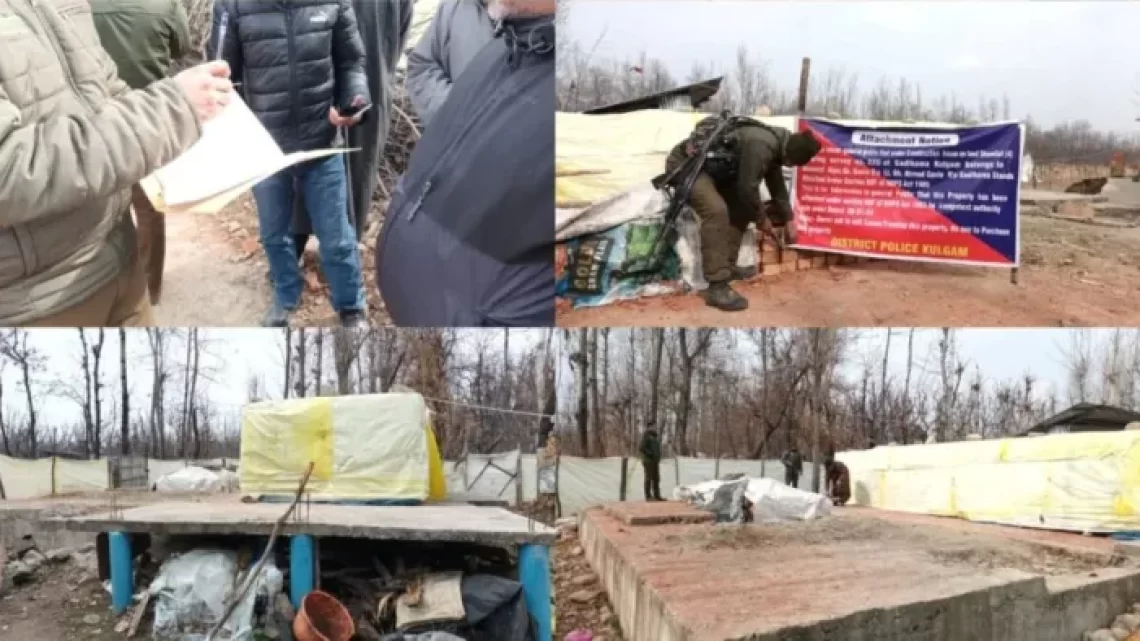
Seizing Properties in IIOJK: A Tool of Suppression by the BJP Government
May 30, 2024The BJP-led Indian government continues its controversial policies in Indian-illegally occupied Jammu and Kashmir, targeting the properties of individuals and organizations under the guise of maintaining order. Recently, authorities sealed properties worth crores belonging to two Kashmiri youths in the Shopian district, marking another chapter in what many view as a punitive campaign against the region’s peace and freedom-loving populace.
Aadil Hussain and Muhammad Yaqoob, the owners of the confiscated lands and shops, are the latest victims in a series of property seizures executed by the Indian police, alongside personnel from various security forces and investigative agencies. These actions are part of a broader strategy by the BJP regime to dislodge Kashmiris from their properties, leveraging agencies like the National Investigation Agency (NIA) and State Investigation Agency (SIA) to carry out these operations.
This aggressive approach has seen the confiscation of hundreds of properties across Jammu and Kashmir. The Indian authorities have targeted assets linked to various groups and individuals, including the All Parties Hurriyat Conference (APHC) and Jamaat-e-Islami. In Srinagar, the APHC headquarters were seized, along with numerous offices, shopping complexes, schools, and institutions associated with Jamaat-e-Islami. Additionally, the homes and businesses of many Hurriyat leaders and activists have been demolished, reflecting a systematic effort to dismantle the socio-economic foundations of these groups.
The BJP government’s use of property seizures as a political tool has drawn significant condemnation. Detractors argue that these actions are less about law and order and more about suppressing dissent and stifling the voices advocating for Kashmir’s autonomy and self-determination. The extensive mobilization of investigative and security agencies for property attachment and demolition is seen as a draconian measure that undermines basic human rights and exacerbates the region’s turmoil.
Human rights organizations and political observers have condemned the ongoing property seizures as an extension of colonial-era policies aimed at punishing and controlling the local population. They highlight that these actions not only displace individuals and families but also erode the economic stability and social fabric of the Kashmiri people. The loss of property and livelihood has long-term implications, pushing affected families into deeper socio-economic distress.
The BJP-led administration in Jammu and Kashmir asserts that these measures are necessary for national security and law enforcement. However, critics counter that such justifications fail to account for the disproportionate impact on innocent civilians and the broader implications for civil liberties and human rights in the region.
As the international community watches, there is a growing concern over the Indian government’s policies in Jammu and Kashmir. Calls for a reassessment of these strategies are becoming more frequent, with advocates urging for an approach that prioritizes dialogue, human rights, and sustainable peace over punitive and coercive measures. The ongoing property seizures stand as a stark reminder of the decades-long conflict and the urgent need for a resolution that respects the rights and aspirations of the Kashmiri people.

